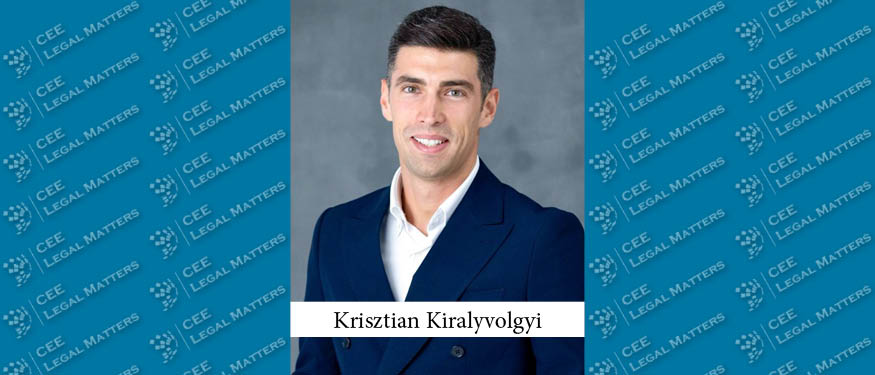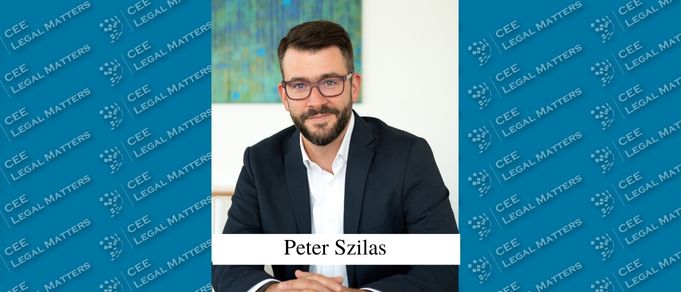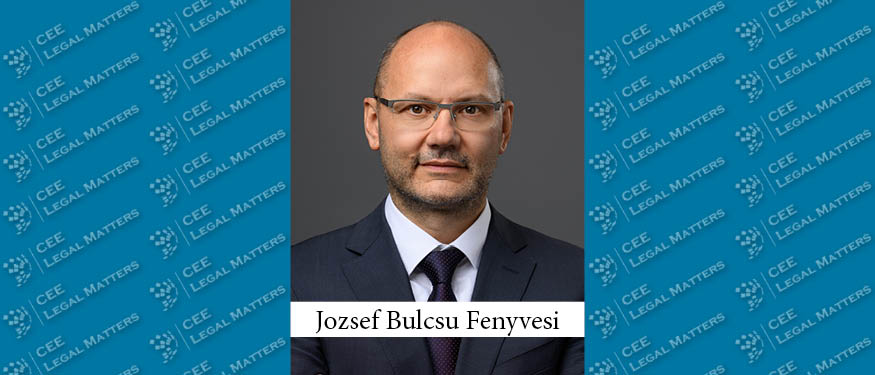According to Regulation 2025/40 of the European Parliament and the Council on packaging and packaging waste, starting from 1 January 2029, only non-profit organizations will be allowed to operate mandatory deposit return systems (DRS) for beverage packaging. Currently, in Hungary, this system is fully operated by MOHU MOL Hulladékgazdálkodási Zrt. (MOHU).
Important Changes in Civil Litigation – Part II – Penalties and Public Success
This article is part of a series presenting selected amendments introduced by Act XLIX of 2025 on the amendment of laws concerning the judiciary (hereinafter the "Act"), which significantly affect civil litigation in several respects.
CMS and DGKV Advise on Renalfa IPP's EUR 1.2 Billion Investment Program and EUR 315 Million EBRD-Led Financing
CMS, working with Ashurst, has advised Renalfa IPP on the development of its EUR 1.2 billion investment program in photovoltaic, battery electricity storage systems, and wind projects across Bulgaria, Hungary, North Macedonia, and Romania. The firm also advised on securing a EUR 315 million club loan facility led by the EBRD and backed by an InvestEU loss guarantee. DGKV, and reportedly A&O Sherman and PHH, advised the lenders.
Cash Payments Became a Constitutional Right in Hungary: What Businesses Need to Know from July 1
Following the March 2025 amendment to Hungary’s Fundamental Law, which elevated the use of cash as a constitutionally protected right, significant legislative changes entered into force on 1 July 2025. These amendments aim to bring existing legal provisions in line with the constitutional recognition of the freedom to pay with cash, thereby guaranteeing that consumers can continue to choose their preferred method of payment, including cash, when purchasing goods or using services.
Dentons and Clifford Chance Advise on Adastra's Sale of Majority Stake to Carlyle
Dentons has advised the founders of Adastra Group on the sale of a majority stake in the company to global investment firm Carlyle. Clifford Chance, working with Latham & Watkins and Ropes & Gray, advised Carlyle.
Crypto Exchanges in Hungary: Legal Uncertainty and Criminal Liability from 1 July 2025
In a rapidly evolving global landscape, regulatory expectations are becoming increasingly complex. While transitional periods may offer a degree of flexibility, the pace of regulatory change demands continuous attention from market players and dedicated resources to maintain compliance and achieve long-term operational resilience.
Kinstellar Advises MVM on Increasing Its Stake in Two Serbian Energy Infrastructure Companies
Kinstellar has advised Hungary’s state-owned energy company MVM on the acquisition of a majority stake in Serbia’s Energotehnika Juzna Backa and Elektromontaza Kraljevo from Maneks, increasing its shareholding from 33.4% to 60%.
Employment Relationship Clarification Procedure in Hungary
Starting 1 July 2025, Hungary will implement a new procedure aimed at clarifying employment relationships and addressing cases where employers fraudulently evade taxes and social security contributions. The initiative is designed to protect employees while also reducing the administrative burden on employers.
Hungarian Court Declared a Foreign Currency Loan Invalid
In June 2025, a foreign currency (Swiss franc) loan agreement was annulled by the Pest Central District Court, since the creditor bank had failed to properly inform the debtor (who had been a consumer) about the exchange rate risk arising from the agreement. As a consequence, the whole agreement is invalid retroactively from the date of its conclusion, so that the bank is only entitled to recover the amount it lent to the debtor; beyond that, all repayments, interest and charges must be repaid to the debtor.
Penalty-Imposing Courts, “Fast-Track” Lawsuits, and Streamed Hearings – A Gen Z Legal Experience in the Courtroom
A new legislative proposal aims to introduce several exciting innovations in civil litigation. The objectives include speeding up court proceedings, increasing public oversight over litigation, modernizing legal education and academic research, enhancing the Supreme Court’s (Kúria) function of ensuring legal uniformity, and reducing the administrative burden on courts related to their obligation to provide reasoning. We’ve summarized the most intriguing innovations from the proposal below.
Throwing A Wrench in Hungarian M&As: A Buzz Interview with Jozsef Bulcsu Fenyvesi of Oppenheim
Hungary’s M&A market may have had a slower start to the year, but activity quickly ramped up, keeping lawyers busier than ever, according to Oppenheim Partner Jozsef Bulcsu Fenyvesi. Still, Fenyvesi notes, a recent and short-lived amendment to the country’s FDI regime introduced serious delays and even potential state intervention into an already complex transactional landscape.
Jalsovszky Launches Second Opinion for Legal Disputes Service
Jalsovszky has launched a dedicated “second opinion” service, offering clients, including individuals, companies, and even fellow lawyers, an independent external perspective in legal disputes.
New FDI rules in Hungary
An FDI notification obligation arises if a foreign investor - whether from a third country (non-EU) or, in certain cases, from an EU Member State, EEA State, or Switzerland - acquires a shareholding or influence in a Hungarian company operating in a strategic sector, based on the Hungarian Government Decree 561/2022 (XII. 23.) on FDI rules.
Rob Irving and Agnieszka Stefanowicz-Baranska Announced as Europe Practice Group Leaders at Dentons
Budapest-based Dentons Partner Rob Irving has been reappointed as the Co-Head of Corporate and M&A, while Warsaw-based Partner Agnieszka Stefanowicz-Baranska has been appointed the Co-Head of the Competition and Antitrust practice.
Hungarian Parliament Closes Transaction Tax Loophole Used by Revolut and other Neobanks
The Hungarian Parliament adopted a tax package in June, amending the Financial Transaction Tax Act to close existing loopholes and ensure that all market participants are subject to the tax.
Kinstellar Advises Altenova on Pyronova-Altebra Cross-Border Merger
Kinstellar, working with Argo, has advised Altenova on its merger with Pyronova Group. KPMG Legal reportedly advised Pyronova.
New Insurance Rules: Hungarian Chamber of Commerce and Industry Starts Enforcing Contractor Liability Coverage
Based on the provisions of Act C of 2023 on Hungarian Architecture (Hungarian Architecture Act), which entered into force on 1 October 2024, the liability insurance rules for contractors have changed. Contractors may now only undertake construction activities for which they have compulsory contractors' liability insurance, in addition to the previously introduced investments, subject to simple notification.
Elementz Legal Advises Bubblify on Acquisition of OXO Retail Locations
Elementz Legal has advised Bubblify International on its acquisition of 22 OXO-brand shopping center retail locations in the Czech Republic, Slovakia, and Hungary.




















